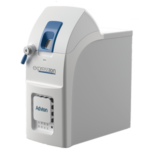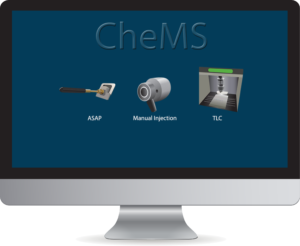This webinar features several useful tools to simplify or even eliminate the sample preparation involved prior to mass spectrometry. In this educational session you will learn about several prep-free mass spec techniques that are available, and how to select which method is best for your analysis. Advion will share their perspectives on some of the new tools and protocols to minimize and simplify sample preparation. You’ll learn how to reduce your time in the lab and see your mass spec results in as little as 30 seconds!
As an attendee, you will learn more about:
- How to select the best tools for sample introduction based on your compound
- How new tools can reduce or eliminate sample preparation for results in <30 seconds
- New workflows to maximize your time in the lab by simplifying complex processes
This webinar was presented at the 2023 LabXpo Virtual event by Lab Manager and LabX, recorded July 20, 2023.
Mass spectrometry is an analytical technique used to determine the mass-to-charge ratio of ions in a sample and therefore the sample composition. This method is used across many industries including food and beverage, environmental monitoring, and clinical. There are many features of mass spectrometers that must be considered before purchasing such as the required mass analyzer technology, ionization source, and dissociation technique. Join Lab Manager and our panel of experts as we discuss how to decipher mass spectrometry technology offerings and find the right solution for your lab.
As an attendee, you will learn more about:
- Available technology for performing mass spectrometry
- Features to consider when purchasing mass spectrometry instruments
- How to find the right mass spectrometer for your application
Metal-based compounds have found utility in various fields such as clinical, energy, food safety and environmental to name a few. Creating the metal complex is the last step in a synthetic process, but it is critical to have the proper conditions for monitoring air-sensitive compounds to get the desire product and that side products are kept to a minimum to maximize yield.
In this application note, the inert atmospheric solid analysis probe (iASAP) and expression Compact Mass Spectrometer (CMS) was used to quickly sample and measure a modification of a published synthesis by Pfeiffer.
The research in this application note was presented at the 66th Annual Conference of the American Society of Mass Spectrometry (ASMS 2018)
The Atmospheric Solids Analysis Probe (ASAP™) allows chemists to directly analyze liquid and solid samples by mass spectrometer without the need for sample preparation. The inert ASAP (iASAP) is a modification of this technique, allowing easy sampling of air-sensitive compounds, such as metal catalysts and organometallics, from reactions that are carried out in a glove box or Schlenk line to prevent oxidation.
The technique allows a synthetic chemist to perform real-time reaction monitoring by sampling the compound with the special iASAP probe, which is designed to provide access to the sample without disturbing the inert environment, then transferring the sample to the CMS, while continuing to protect it in an inert environment where it is ionized by atmospheric pressure chemical ionization (APCI). Mass Spectra are acquired in seconds.
Reaction monitoring is a key aspect in a range of chemistry environments from chemical synthesis to drug discovery to understanding natural products to protein synthesis. Understanding the optimal time to quench a reaction for maximum yield, as well as monitoring a reaction in real-time is vital to many medicinal and synthetic organic chemists. Advion Interchim Scientific’s expression® CMS was developed with the chemist in mind to optimize their workflow directly at the bench. It is an easy-to-use and maintain single quadrupole detector that integrates with the industry’s broadest range of innovative sampling techniques from direct probe analysis to ultra-high performance liquid chromatography. Users can rapidly switch between the many different sampling techniques required throughout the chemist’s workflow.
 Bring mass spectrometry into your classroom for remote or on-site learning with a training course for the expression® Compact Mass Spectrometer (CMS).
Bring mass spectrometry into your classroom for remote or on-site learning with a training course for the expression® Compact Mass Spectrometer (CMS).
Advion offers an affordable MS teaching package that includes:
- A compact, easy-to-use benchtop mass spectrometer for both students and researchers
- Recorded lectures and video lab content
- Lecture slides to share or adapt to your own teaching style

PLUS: Easy, student-friendly software. Select the workflow, the type of compounds, and students are on their way with just a few clicks of the mouse.
A research-grade mass spec, the expression® CMS is ideal for teaching because of its small size, ease of use, and one-click software. When class is not in session, the system is ready for research, making this a versatile choice for university labs seeking state of the art equipment paired with streamlined teaching modules.
For Direct Mass Analysis of Air-Sensitive Samples, Catalysts and Organometallics at the Bench With the expression® CMS
The Atmospheric Solids Analysis Probe (ASAP®) allows chemists to directly analyze liquid and solid samples by mass spectrometer without the need for sample preparation at the bench, right next to the reaction. The inert ASAP (iASAP) is a modification of this technique, allowing easy sampling of air-sensitive compounds, such as metal catalysts and organometallics, from reactions that are carried out in a glove box or Schlenk line to prevent oxidation.
The technique allows a synthetic chemist to perform real-time reaction monitoring by sampling the compound with the special iASAP probe, which is designed to provide access to a sample protected in a glovebox or Schlenk line, then transferring the sample to the CMS, while continuing to protect it in an inert environment where it is ionized by atmospheric pressure chemical ionization (APCI). Mass Spectra are acquired in seconds.
Introduction
Metal based compounds have found utility in various fields such as clinical, energy, food safety and environmental to name a few. Creating the metal complex is the last step in a synthetic process when ligands are bound to the metal center. Once made, these metal complexes can be used anywhere from stereospecific synthesis to anti-cancer drugs. It is critical that reaction conditions are providing the desired product and that side products are kept to a minimum to maximize yield. Presented here is the use of an inert atmospheric solid analysis (iASAP) probe to quickly sample and measure the reaction via mass spectrometry.
Many chemical reactions carried out by synthetic chemists involve air-sensitive compounds such as metal catalysts and organometallics and must therefore be carried out in a glove box or using a Schlenk line to prevent oxidation and hydrolysis. Sampling and transportation of these samples to a mass spectrometer by an Atmospheric Solids Analysis Probe (ASAP®) without exposure to the air presents a problem.
Here, the inert ASAP probe (iASAP), a modification of the technique developed by Professor Ingo Krossing’s group at the Albert-Ludwigs-University of Freiburg, allows sampling and transportation in an environment of inert gas to prevent decomposition of the compound.
Many chemical reactions carried out by synthetic chemists involve air-sensitive compounds such as metal catalysts and organometallics and must therefore be carried out in a glove box or using a Schlenk line to prevent oxidation and hydrolysis. Sampling and transportation of these samples to a mass spectrometer by an Atmospheric Solids Analysis Probe (ASAP ®) without exposure to the air presents a problem. Here, the inert ASAP probe (iASAP), a modification of the technique developed by Professor Ingo Krossing’s group at the Albert-Ludwigs-University of Freiburg, allows sampling and transportation in an environment of inert gas to prevent decomposition of the compound.

 Bring mass spectrometry into your classroom for remote or on-site learning with a training course for the expression® Compact Mass Spectrometer (CMS).
Bring mass spectrometry into your classroom for remote or on-site learning with a training course for the expression® Compact Mass Spectrometer (CMS).